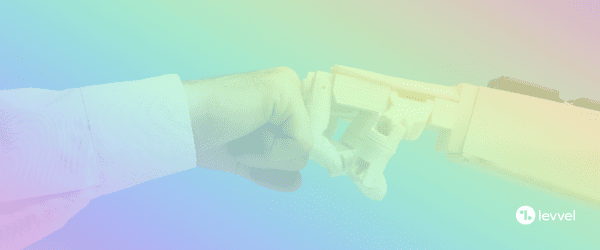If you’ve not dabbled with an AI tool then you are in the minority. In today’s tech-driven world, the rise of generative AI has been nothing short of remarkable. These AI systems, powered by advanced language models, offer a world of possibilities in the workplace. However, many companies are still on the fence about allowing their employees to use it in the workplace. Is it fear of the unknown? There are many reasons behind this caution and how it impacts brand image, information integrity, job retention, and productivity. Plus, let’s explore a hidden aspect of generative AI—its selective information scraping.
The Power of Generative AI
Generative AI, powered by advanced language models like GPT-3, has taken the tech world by storm. These AI systems can generate text, assist in content creation, automate tasks, and even answer questions. It sounds like a dream tool for the modern workplace, right? Well, not everyone is convinced.
Fear of the Unknown
One major reason why companies are hesitant to fully embrace generative AI at work is the fear of the unknown. As with any new technology, there’s a learning curve. Employers worry about how to effectively integrate it into their existing workflows and ensure that their employees use it responsibly.
Brand Image Concerns
Your company’s brand image is a precious asset. Many organizations worry that allowing generative AI in the workplace might lead to content that doesn’t align with their values or tone. After all, AI-generated content is only as good as the data it’s trained on, and it doesn’t always get the nuances right. A misstep in content creation could potentially harm a brand’s reputation.

Information Integrity
Another concern is the integrity of information generated by AI. While AI can be a powerful tool for data analysis, there’s always a risk that it might produce inaccurate or biased information. This could lead to poor decision-making if not carefully monitored and fact checked.
Job Retention and Productivity
Some employees fear that the integration of generative AI might lead to job displacement. While AI can automate certain tasks, there are still plenty of areas where human creativity, judgment, and critical thinking are essential. However, if used wisely, AI can enhance productivity by handling repetitive, time-consuming tasks, freeing up employees to focus on more strategic activities.
The Secret About Selective Information Scraping
One of the lesser-known aspects of generative AI is that it doesn’t scour the entire internet for information. Instead, it operates within the bounds set by its creators. This means that the information it draws upon may not be a complete reflection of the entire online universe. It’s not inherently biased; it’s just limited to the data it’s been trained on.
So Now What?
So, what’s the path forward for companies grappling with these concerns? The key is to strike a balance. Companies should provide proper training and guidelines to employees using generative AI tools. Clear usage policies and ethical considerations should be in place to ensure that the technology is harnessed responsibly.
Sure, there will still be fear around using AI, so be selective in where and how you use it. With proper education, guidelines, and oversight, there are benefits of this technology. So, step in…don’t jump, being mindful of its limitations. After all it’s only going to get more robust, and the future of work is all about human-AI collaboration. It’s a future that’s closer than we might think.
~Cherene Kambeitz, Marketing & Communications Director – Levvel inc. Reach out to Connect@levvel.ca


